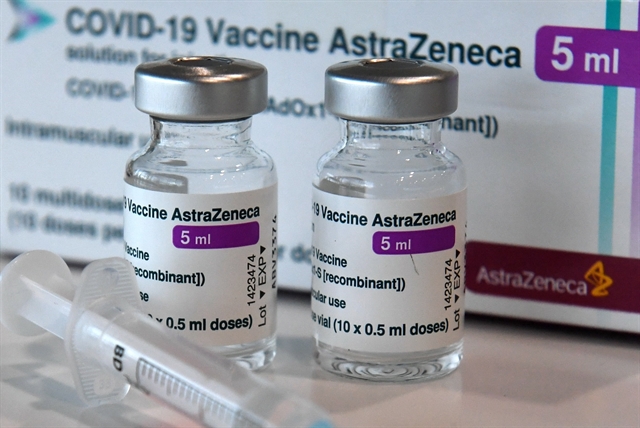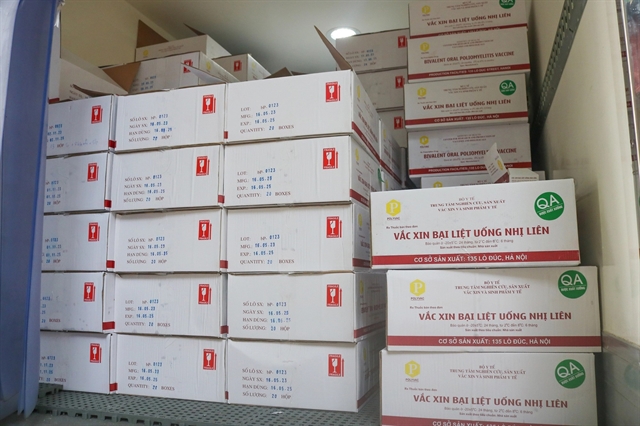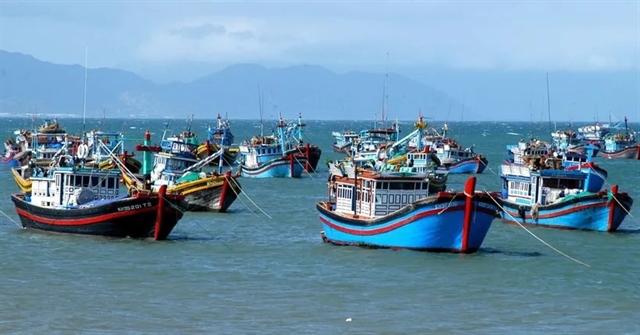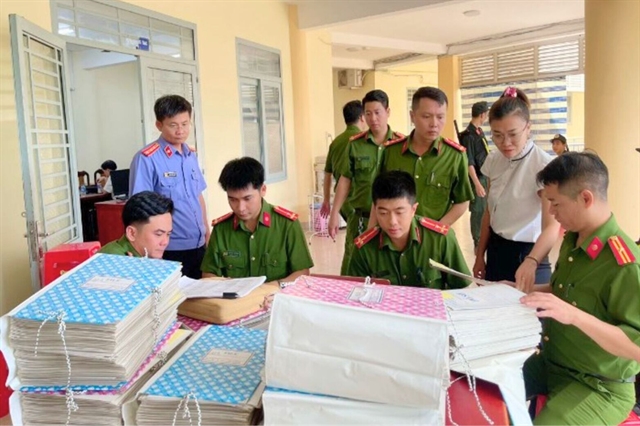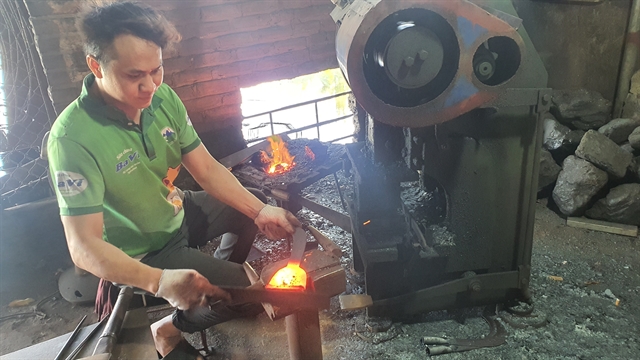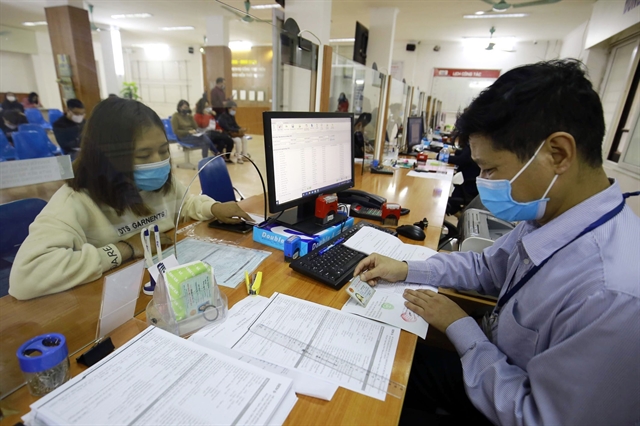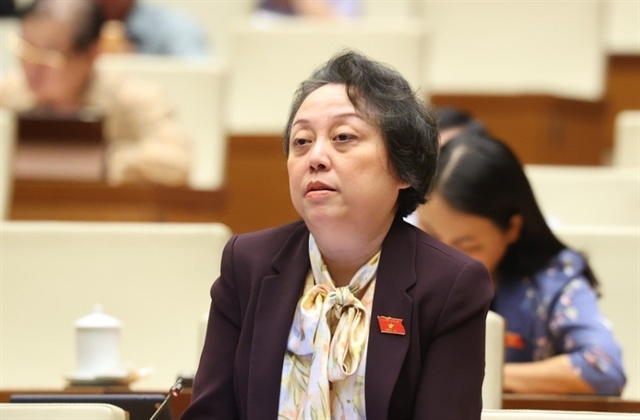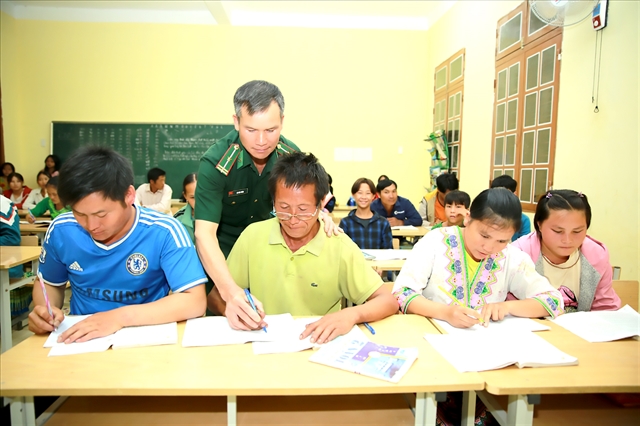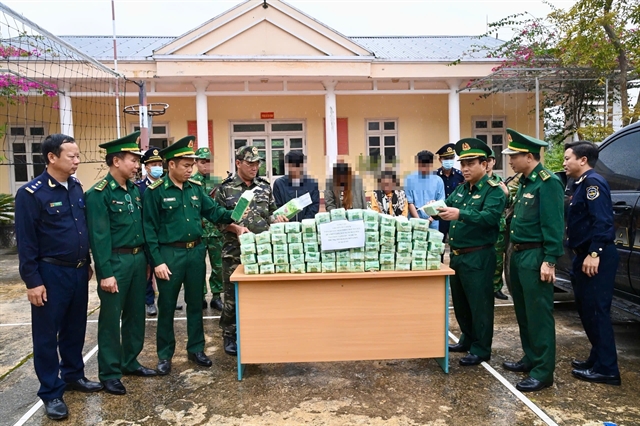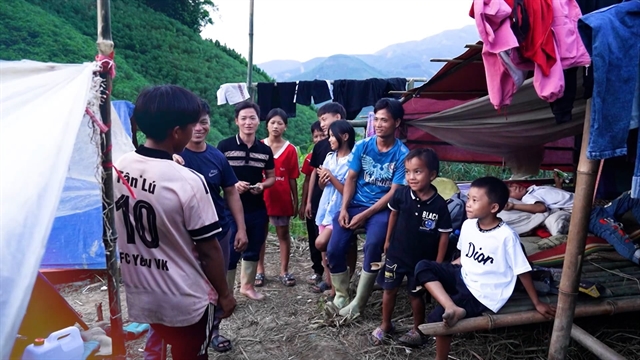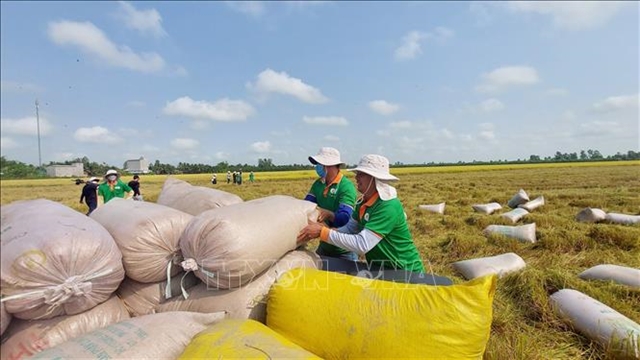
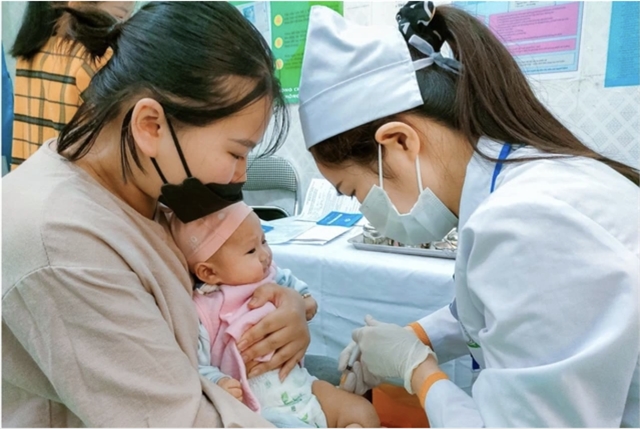 |
| A baby is receiving vaccination in Hà Nội. Photo suckhoedoisong.vn |
HÀ NỘI – Numerous procedures and regulations on budget allocation for purchasing vaccines were the main reasons for shortage of vaccines for the expanded immunisation programme (EIP), said the Ministry of Health (MoH).
The MoH has recently submitted a report addressing the concern of the National Assembly Standing Committee’s Ombudsman Commission regarding the shortage of vaccines for the EIP.
Previously, in a meeting, Dương Thanh Bình, head of the Ombudsman Commission presented a report on the results of monitoring the resolution of people petitions citing that residents in many areas reported a shortage of vaccines at public healthcare facilities, resulting in many children missing scheduled vaccinations or not receiving the full dose.
According to the report, this situation has persisted since the end of 2022. People have urged MoH to take decisive action to ensure a sufficient and timely vaccine supply and to assess accountability for the prolonged shortage.
The ministry’s Preventive Medicine Department indicated that vaccination rates within the EIP decreased post-Covid-19 across many countries and territories due to lockdowns, travel restrictions, and limited or disrupted access to healthcare services.
The ministry said that, prior to 2023, it was responsible for vaccine procurement and allocation to localities.
However, from 2023 onwards, under the State Budget Law, localities are required to purchase vaccines with their own budgets.
Yet, during implementation, localities faced difficulties in budget allocation, approval, tendering, price appraisal, and a lack of experience.
As a result, many localities have requested the ministry to continue acting as the central procuring authority for vaccines and to allocate them to localities.
During its special supervision of COVID-19 resource mobilisation, management and use, the National Assembly also noted these requests.
To address these issues, the Government submitted a proposal to the National Assembly, leading to the issuance of Resolution No. 99, which directs the allocation of central budget funds to continue implementing the national EIP, ensuring consistency, timeliness and efficiency nationwide.
Following this, the Government issued Resolution No. 98, allocating central budget funds in 2023 for the MOH to purchase vaccines for the EIP.
At the end of 2023, the MoH provided guidance to provinces and cities, compiled vaccine demand for 2024 nationwide, completed procurement procedures for 10 domestically produced vaccines, and instructed the National Institute of Hygiene and Epidemiology to receive approximately 24.2 million doses of various vaccines for use in the EIP, funded by the State budget and aid.
To date, the ministry reported that it has distributed 22.79 million doses to localities as planned.
"During the pending approval of the 2024 budget, the Ministry of Health directed relevant units to procure vaccines urgently needed for the expanded immunisation programme, including tetanus and hepatitis B vaccines for newborns," the MoH report stated.
The ministry also pointed out some challenges in vaccine procurement, such as a lengthy process requiring approximately two to three months for completion.
Additionally, the vaccine price appraisal and approval process involves several steps, necessitating coordination among the MOH, the Ministry of Finance and manufacturing units.
This, according to the MOH, may lead to delays in issuing specific pricing, which affects the procurement timeline. VNS
